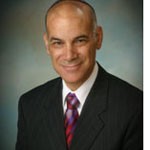By Rabbi Leonard Rosenthal

SAN DIEGO — On Rosh Chodesh (the new month) and on each of the Shalosh Regalim (pilgrimage festivals): Pesach, Shavuot, and Sukkot, we add a special section to the morning service called “Hallel.” “Hallel” means praise. Hallel consists of several Psalms (religious poems) which reflect the celebrations which took place in the Temple in Jerusalem on these days.
One of my favorite Psalms is Psalm 114. Not only does it have a catchy melody, its words reflect the wonder of the Exodus:
When Israel went forth from Egypt,
the house of Jacob from a people of strange speech,
Judah became His holy one, Israel, His dominion.
The sea saw them and fled, the Jordan ran backward,
mountains skipped like rams, hills like sheep.What alarmed you, O sea, that you fled, Jordan, that you ran backward, mountains, that you skipped
like rams, hills, like sheep?Tremble, O earth, at the presence of the Lord, at the presence of the God of Jacob,
who turned the rock into a pool of water, the flinty rock
into a fountain.
In Psalm 114 the psalmist asserts that not only were the Egyptians shaken to their very core at the sight of the Jews leaving, but the physical world also responded to the miracle of the Exodus. The sea fled, the river Jordan reversed course, and the mountains shifted.
As Rabbi Martin Cohen wrote in his commentary on the Book of Psalms, the author of Psalm 114, “imagines the exodus of Israel from Egyptian bondage neither as a military maneuver nor as a helter-skelter race across the desert to freedom, but as a series of cosmic events…And the ever-sensitive earth responded in ways that suggested its own insight into the events taking place on its outer crust.” (“Our Haven and Our Strength, p.368)
The Exodus from Egypt was transformative in many ways. It was not about slaves seeking liberation, but God’s demand that one human being no longer subjugate another. It is also the story of the struggle of the One True God facing off and defeating Pharaoh who thought himself god, and with him all other false gods. The Exodus is also the beginning of the journey and transformation of the “mixed multitude” that left Egypt, into a nation that once unified at Mt. Sinai, was able to grow strong enough to conquer the Promised Land.
One cannot overemphasize the importance of the Exodus in forming the Jewish psyche. It is the cornerstone of our relationship with God, with each other, and the world around us. We call it to mind daily during our prayers (Twice a day we repeat the words our ancestors sang after they crossed the sea, “Who is like You, Adonai, among all that is worshipped!”). We call it to mind every Friday evening when we recite the Kiddush (“It is the first among our days of sacred assembly that recall the Exodus from Egypt”). And three of our major festivals trace themselves to this unique event (Pesach – we recall the Exodus itself, on Shavuot – we commemorate the stop at Mt. Sinai to receive the Torah, and on Sukkot – we live in booths to remind us of the desert wanderings of our ancestors.)
As we read in the Haggadah, each of us should consider ourselves as having participated in the Exodus from Egypt, for if God had not rescued our ancestors, we still might be enslaved there today. Putting ourselves in their place should remind us of our obligation to work toward the liberation of all humankind.
On Passover, we remember the suffering of our ancestors in Egypt to inspire us to relieve and reduce suffering today. We recall our ancestors’ march to freedom to impel us to work for the day when all humans will be free. We remember the miraculous event which forged a mixed multitude into a nation to strengthen our bonds with our Jewish brothers and sisters throughout the world today.
On Passover we remember where we came from, which is good in and of itself. But our memories become even more powerful when we use them to inspire and propel us toward the future.
*
Rabbi Rosenthal is spiritual leader of Tifereth Israel Synagogue in San Diego. Your comment may be sent to leonard.rosenthal@sdjewishworld.com, or posted on this website, per the rules below
__________________________________________________________________
Care to comment? We require the following information on any letter for publication: 1) Your full name 2) Your city and state (or country) of residence. Letters lacking such information will be automatically deleted. San Diego Jewish World is intended as a forum for the entire Jewish community, whatever your political leanings. Letters may be posted below provided they are responsive to the article that prompted them, and civil in their tone. Ad hominem attacks against any religion, country, gender, race, sexual orientation, or physical disability will not be considered for publication. There is a limit of one letter per writer on any given day.
__________________________________________________________________